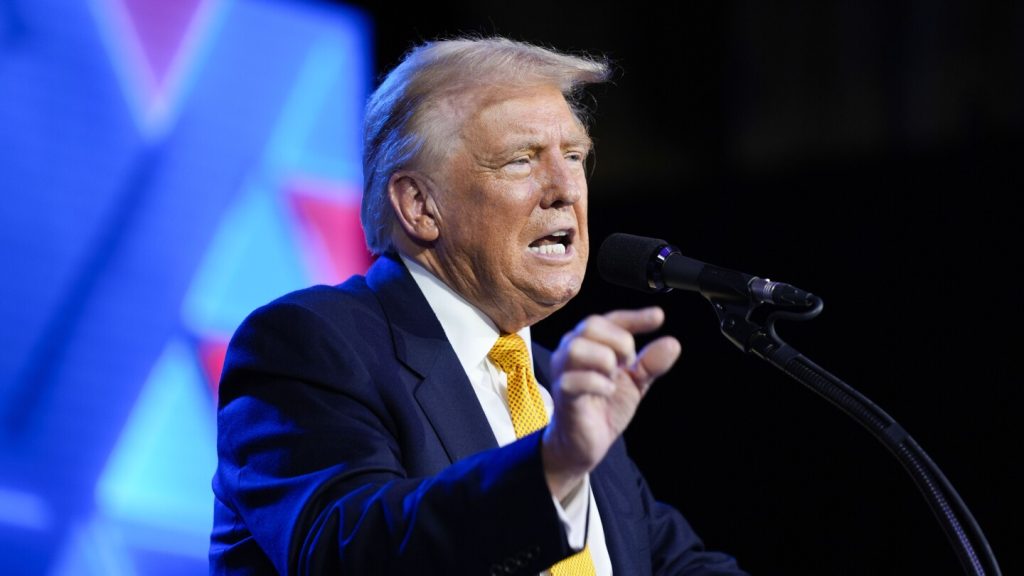WASHINGTON (AP) — As the November election approaches, a new poll conducted by The Associated Press-NORC Center for Public Affairs Research reveals that neither Kamala Harris nor Donald Trump has a clear advantage with the public when it comes to the economy. Roughly 4 in 10 registered voters believe Trump would do a better job handling the economy, while a similar number feel the same about Harris. This highlights a shift from Trump’s previous strength on this issue, with Harris possibly avoiding some of the negative perceptions associated with Biden’s economic track record. Despite these findings, about 1 in 10 voters do not trust either candidate, and a similar share have equal faith in both.
The economy has traditionally been a weak point for Biden, with previous polls showing a majority of Americans disapproving of his handling of the economy. However, the new poll indicates that the economy is a critical issue for about 8 in 10 voters as they evaluate their choices for the election, overshadowing concerns such as health care and crime. The impact of inflation, rising interest rates, and increased consumer costs have overshadowed positive indicators like low unemployment rates and stock market gains. While voter sentiment about the national economy remains pessimistic, many are more optimistic about their own financial situations, suggesting a disconnect between personal experiences and broader economic perceptions.
Both Harris and Trump have diverging proposals for addressing the economy, presenting voters with a clear choice. Harris aims to fund her plans without adding to the deficit by increasing taxes on corporations and the wealthy, while Trump’s team believes in driving growth through tax cuts for corporations and imposing tariffs on imports. Despite the competing strategies, neither campaign has fully detailed how they plan to execute their economic plans, leaving voters to base their decisions on broader ideological preferences. This underscores the increasing impact of partisan identities on economic policy views.
The public sentiment around various issues like health care, crime, immigration, abortion, and climate change is shaping the voter landscape as the election approaches. While health care is a top concern for more than half of voters, crime, immigration, and gun policy remain significant issues for many Americans. Trump holds an advantage over Harris on immigration-related matters, an area where Republicans typically prioritize. Conversely, Harris is viewed more favorably on issues like gun policy, health care, abortion, and climate change, aligning with Democratic priorities. The distinctive partisan views on these topics reflect the broader ideological divide in the country.
Overall, the high stakes of the upcoming election are evident in the public’s perception of its impact on the country’s future, economy, and democracy. While about 8 in 10 voters believe the election will have a substantial impact on the nation, fewer feel it will personally affect them. The views from voters like Richard Tunnell, an ardent Trump supporter, and Chantelle Breaux, a disillusioned voter from Louisiana who feels neither candidate addresses the economy sufficiently, highlight the diverse attitudes and concerns surrounding the election. As the campaign intensifies, the candidates’ ability to address voters’ economic anxieties and implement effective policy solutions will be critical in shaping the final outcome.


